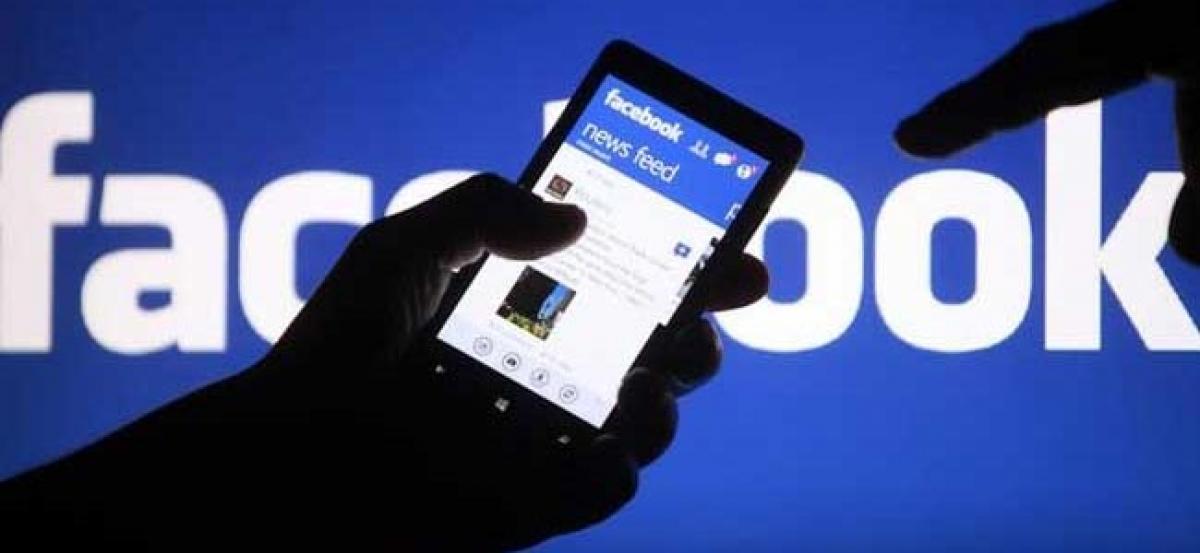Live
- India is 'Mother of Democracy': PM Modi
- ‘One nation, one election’ will undermine India’s federal structure: Mehbooba Mufti
- ‘Bachhala Malli’ trailer heightens anticipation
- Karnataka quota row: Backward Class forum chief warns Lingayat seer over 'tinkering with reservations'
- Tight security arrangements at Group-II examination centers District SP
- Alia Bhatt captures attention in white
- Varun Dhawan talks about ‘Baby John’
- ‘Moonwalk’ trailer promises a quirky heist, love, and loyalty
- Combat leaf spot disease
- Ahsaas Channaopens up about her complex character in ‘Mismatched 3’
Just In

If someone claims that he or she has over 1,000 friends on Facebook, he or she is probably lying.
London: If someone claims that he or she has over 1,000 friends on Facebook, he or she is probably lying.
According to an interesting research, the average number of real close friends people have on the social networking site is less than 200, and here too women triumph with more genuine friends than men.
According to psychologist professor Robin Dunbar from the University of Oxford who conducted two surveys, among regular social media users, the average number of friends they had on Facebook was 155 in the first survey and 183 in the second.
Women had more friends than men (in the first sample, women averaged 166 and men just 145 friends; in the second, it was 196 vs 157) while - perhaps unsurprisingly - older generations had fewer friends than younger ones, Dunbar found.
According to him, social media certainly help to slow down the natural rate of decay in relationship quality that would set in once we cannot readily meet friends face-to-face.
"But no amount of social media will prevent a friend eventually becoming 'just another acquaintance' if you don't meet face-to-face from time to time,” Dunbar explained in a paper published in Royal Society Open Science journal.
"There is something paramount about face-to-face interactions that is crucial for maintaining friendships. Seeing the white of their eyes from time to time seems to be crucial to the way we maintain friendships,” he added.
Offline, research has given rise to what's called the Social Brain Hypothesis. This says that our brain's ability to process multiple relationships creates a natural group size of 100-200 people for humans.
This size is also constrained by the time required to maintain relationships - we only have so much time to devote to meeting or talking to people.
Social media may seem to be a way to make and maintain hundreds of friendships.
It has been suggested that social media might overcome the constraints because posts, tweets and pictures allow us to talk to many more people at the same time even if the interaction is not direct.
This prompted Dunbar to carry out two surveys of more than 3,300 people to see whether using the Internet really means we can have more friends.
The first survey group, made up of regular social media users, considered only 28 percent of their Facebook friends to be “genuine” (close) friends.
While a few people did have much larger groups of online “friends” on Facebook, they had similar sized support and sympathy groups to others.
This suggests that when social media seem to allow someone to have more friends, it is because looser acquaintances were being included in the 'friend' category.
"The research shows that face-to-face interaction is essential for truly authentic relationships and that shares, selfies and 'likes' are no replacement for the bonding that takes place while sharing food, experiences and anecdotes,” informed Sue Fudge, director at Dorset bakers Thomas J. Fudge's.

© 2024 Hyderabad Media House Limited/The Hans India. All rights reserved. Powered by hocalwire.com







